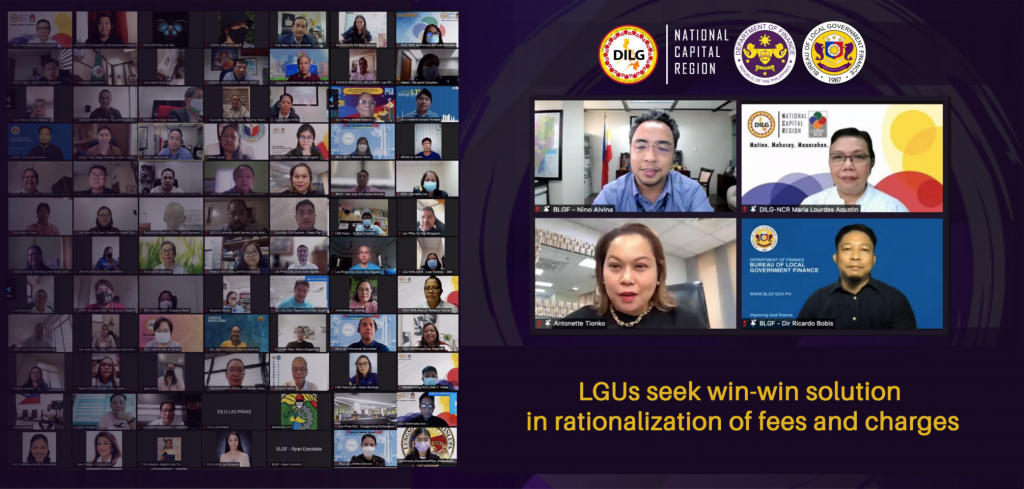
The DILG National Capital Region (DILG-NCR), in partnership with the Department of Finance-Bureau of Local Government Finance (DOF-BLGF) held an Executive Briefing with key Local Government Units (LGUs) functionaries on August 18, 2021. The virtual meeting featured discussions on easing the cost of doing business though the Rationalization of Fees and Charges (RFC) and the Updating of the Local Revenue Code (LRC).
In 2019, the DILG, in partnership with the DOF, issued Joint Memorandum Circular No. 01 Series of 2019 which provided guidelines for the review, adjustment, setting and adoption of reasonable regulatory fees and charges by LGUs.
In her opening message, DILG-NCR Regional Director Maria Lourdes L. Agustin, CESO III reaffirmed the governmentâs support to the private sector and encouraged LGUs to make it easier for businesses to estimate the potential returns on their investment by minimizing uncertainty associated with the cost of doing business.
The briefing further encouraged LGUs to apply principles of proportionality and reasonableness when setting the local fees and charges that they impose on businesses. In her keynote message, Finance Undersecretary Antonette C. Tionko emphasized that the overarching goal of the RFC is to strike a good balance between local revenue generation and the ease of doing business.
BLGF Executive Director Niño Raymond R. Alvina presented the experiences of LGUs on their RFC and the updating of their LRCs.
On the subject of ease of doing business, BLGF-DOF Director Ricardo L. Bobis, Jr. made reference to the Ease of Doing Business Act of 2018 which requires that all proposed regulation be subject to a Regulatory Impact Assessment the purpose of which is to ensure that the regulation does not add undue regulatory burden and cost to the government agency concerned and the applicant or requesting party (subject of regulation).
This initiative is very timely given the challenging business environment and the need to boost the technical capacities of LGUs with the introduction of new techniques and tools such as the Local Fees and Charges (LFC) toolkit.
More importantly with RFC, taxpayers can expect more consistent and predictable rates of fees and charges from LGUs. Ultimately, RFC should result in improving the competitive position of local businesses in the global marketplace.
The event was participated in by one hundred-eleven (111) participants from LGUs, among them City Administrators, Sanggunian members, and members of the Local Finance Committees.
